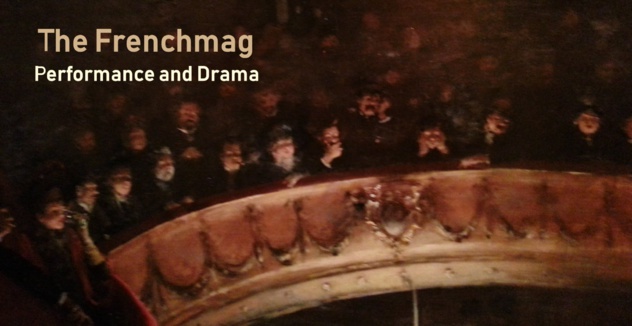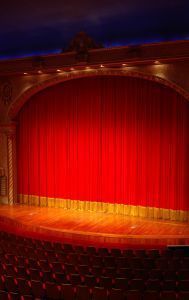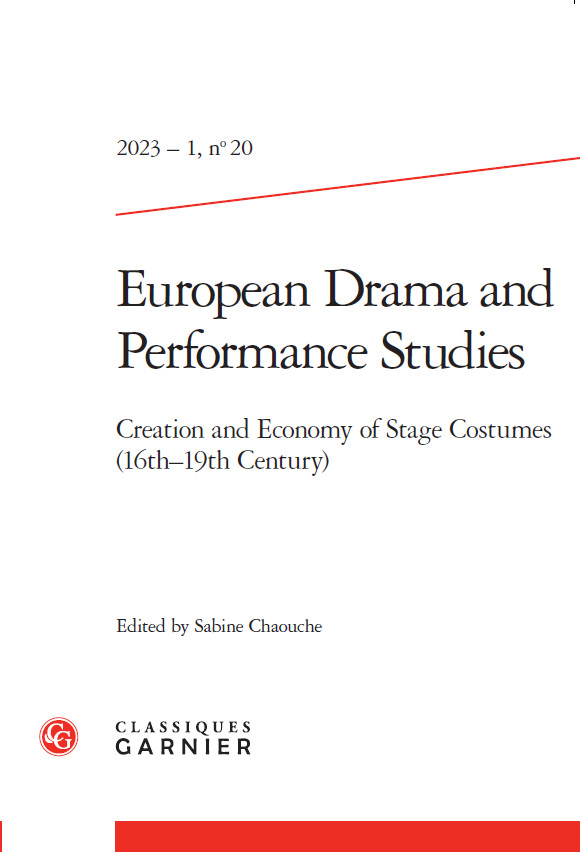Libertin! - Usage d'une invective aux XVIe et XVIIe siècles (éd. Thomas Berns, Anne Staquet, Monique Weis)
329 pages
Livre broché - 34 €
Ce livre étudie de manière transversale les multiples usages attestés du terme «libertin» chez les auteurs du début de l'époque moderne, rendant ainsi manifeste la diversité des emplois et déplacements d'une invective, qu'il s'agisse de stigmatiser, de s'en revendiquer, ou de s'en protéger.
This book conducts an interdisciplinary investigation into the multiple uses of the term libertin amongst authors at the beginning of the modern period. In doing so, it reveals the diverse uses of the word, and the way in which its function as an insult shifts: at times used to stigmatise and at others to assert an identity or as self-protection.
En version reliée - 53 €
Dire le vrai dans la première modernité - Langue, esthétique, doctrine (éd. Dominique de Courcelles)
277 pages
Livre broché - 28 €
Cet ouvrage étudie la langue du vrai dans la première modernité. La vérité dépend-elle d'une belle énonciation? Y a-t-il des règles institutionnelles spécifiques d'énonciation de la vérité? Pourquoi la doctrina constitue-t-elle l'horizon de tout savoir et de tout enseignement prétendant à la vérité?
This work studies the language of truth in the early modern era. Does truth depend on fine expression? Are there institutional rules specific to the expression of the truth? Why does the doctrina constitute the limit of all knowledge and teaching pertaining to the truth?
En version reliée - 47 €
La Clarté à l'âge classique (éd. Emmanuel Bury, Carsten Meiner)
282 pages
Livre broché - 28 €
Les travaux réunis ici se proposent d'explorer les principaux champs du savoir où la notion de clarté fait sens durant la période des XVIIe et XVIII siècles: dans la philosophie, dans les discours grammatical, rhétorique et religieux, et enfin, dans le domaine de la poétique classique.
The works brought together here aim to explore the fields in which the notion of clarté operates, in the period of the seventeenth and eighteenth centuries. These fields include philosophy, grammar, rhetoric, religion, and classical poetry.
En version reliée - 47 €
Lotterie (Florence), Le Genre des Lumières - Femme et philosophe au XVIIIe siècle
336 pages
Livre broché - 35 €
Au XVIIIe siècle, la figure insistante de la «femme philosophe» s'articule à un imaginaire ambivalent de la différence des sexes, entre hantise d'une confusion délétère et quête d'un modèle d'harmonie. La femme travestit-elle la philosophie? Les Lumières ont-elles un genre?
In the eighteenth century, the powerful figure of the “female philosopher” is at the centre of ambivalent fantasies concerning the difference between the sexes, which swing between the fear of harmful confusion and the desire for harmony. Do women distort philosophy? Is the Enlightenment gendered?
En version reliée - 54 €
Mareschal (André), Tragi-comédies. Tome II - La Sœur valeureuse ou l'Aveugle Amante et Le Mausolée (éd. Hélène Baby)
392 pages
Livre broché - 39 €
L'édition conjointe de La Sœur valeureuse et du Mausolée rassemble deux tragi-comédies créées par André Mareschal respectivement en amont et en aval du Cid. Animées par l'aspiration à la liberté, ces deux pièces témoignent de la modernité des interrogations politiques et morales du Grand Siècle.
This joint edition of La Sœur Valeureuse and Mausolée brings together two tragi-comedies created by André Mareschal, before and after the Cid, respectively. Driven by the aspiration towards freedom, both plays testify to the modernity of political and moral thought in the “Grand Siècle”.
En version reliée - 58 €
329 pages
Livre broché - 34 €
Ce livre étudie de manière transversale les multiples usages attestés du terme «libertin» chez les auteurs du début de l'époque moderne, rendant ainsi manifeste la diversité des emplois et déplacements d'une invective, qu'il s'agisse de stigmatiser, de s'en revendiquer, ou de s'en protéger.
This book conducts an interdisciplinary investigation into the multiple uses of the term libertin amongst authors at the beginning of the modern period. In doing so, it reveals the diverse uses of the word, and the way in which its function as an insult shifts: at times used to stigmatise and at others to assert an identity or as self-protection.
En version reliée - 53 €
Dire le vrai dans la première modernité - Langue, esthétique, doctrine (éd. Dominique de Courcelles)
277 pages
Livre broché - 28 €
Cet ouvrage étudie la langue du vrai dans la première modernité. La vérité dépend-elle d'une belle énonciation? Y a-t-il des règles institutionnelles spécifiques d'énonciation de la vérité? Pourquoi la doctrina constitue-t-elle l'horizon de tout savoir et de tout enseignement prétendant à la vérité?
This work studies the language of truth in the early modern era. Does truth depend on fine expression? Are there institutional rules specific to the expression of the truth? Why does the doctrina constitute the limit of all knowledge and teaching pertaining to the truth?
En version reliée - 47 €
La Clarté à l'âge classique (éd. Emmanuel Bury, Carsten Meiner)
282 pages
Livre broché - 28 €
Les travaux réunis ici se proposent d'explorer les principaux champs du savoir où la notion de clarté fait sens durant la période des XVIIe et XVIII siècles: dans la philosophie, dans les discours grammatical, rhétorique et religieux, et enfin, dans le domaine de la poétique classique.
The works brought together here aim to explore the fields in which the notion of clarté operates, in the period of the seventeenth and eighteenth centuries. These fields include philosophy, grammar, rhetoric, religion, and classical poetry.
En version reliée - 47 €
Lotterie (Florence), Le Genre des Lumières - Femme et philosophe au XVIIIe siècle
336 pages
Livre broché - 35 €
Au XVIIIe siècle, la figure insistante de la «femme philosophe» s'articule à un imaginaire ambivalent de la différence des sexes, entre hantise d'une confusion délétère et quête d'un modèle d'harmonie. La femme travestit-elle la philosophie? Les Lumières ont-elles un genre?
In the eighteenth century, the powerful figure of the “female philosopher” is at the centre of ambivalent fantasies concerning the difference between the sexes, which swing between the fear of harmful confusion and the desire for harmony. Do women distort philosophy? Is the Enlightenment gendered?
En version reliée - 54 €
Mareschal (André), Tragi-comédies. Tome II - La Sœur valeureuse ou l'Aveugle Amante et Le Mausolée (éd. Hélène Baby)
392 pages
Livre broché - 39 €
L'édition conjointe de La Sœur valeureuse et du Mausolée rassemble deux tragi-comédies créées par André Mareschal respectivement en amont et en aval du Cid. Animées par l'aspiration à la liberté, ces deux pièces témoignent de la modernité des interrogations politiques et morales du Grand Siècle.
This joint edition of La Sœur Valeureuse and Mausolée brings together two tragi-comedies created by André Mareschal, before and after the Cid, respectively. Driven by the aspiration towards freedom, both plays testify to the modernity of political and moral thought in the “Grand Siècle”.
En version reliée - 58 €



